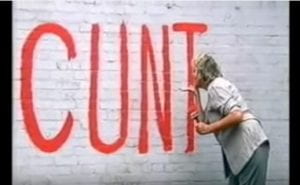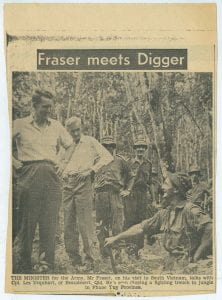‘Koorie Boogaja’ 1971
Beth Marsden
‘This is our land and we are proud of it. After all, you white fellows weren’t the first to discover Australia—we were here first.’ Charlie Carter[1]
This poster shows a map of Australia produced by the Aborigines Advancement League in 1971. Entitled ‘Koorie Boogaja’, this eloquent graphic illustration shows Aboriginal tribal boundaries traced across the Australian continent, with a key provided to locate each tribe. Measuring 60 x 70 cm, the sub-heading ‘School Project’ shows the aim of this poster was to encourage students to develop and build an awareness of the history and complexity of Aboriginal Australia and the creator of the map—the Aborigines Advancement League— is written at the base. Continue reading “‘Koorie Boogaja’ 1971”


